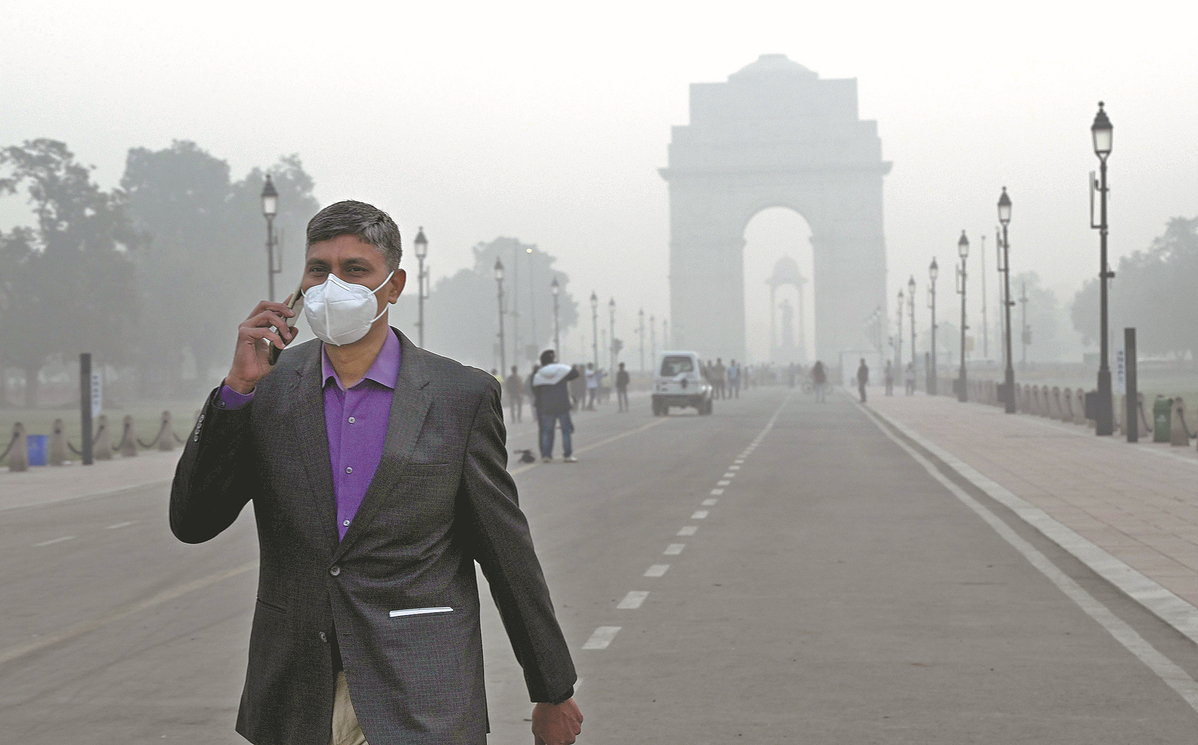India eyes green efforts amid pollution woes
By APARAJIT CHAKRABORTY in New Delhi | China Daily Global | Updated: 2023-11-29 09:31

Modi pledges to meet climate goals at COP28 as nation's air quality worsens
As New Delhi continues to struggle with worsening air pollution, an Indian delegation led by Prime Minister Narendra Modi traveled to the United Nations' COP28 climate change summit with the hope of meeting the country's decarbonization and clean energy goals.
Early last month, the Indian capital was again the most polluted city in the world, according to Swiss group IQAir, which categorized its air quality as "hazardous".The alarming levels prompted authorities to take drastic measures, including the closure of schools.
On Monday, New Delhi's air quality again turned severe. With winter approaching, northern India's air quality is reaching hazardous levels during this time of year.
As acrid smoke blankets the capital's sky, Modi will make a two-day visit to Dubai in the United Arab Emirates from Thursday to attend COP28, underlining the country's commitment to the issue of climate change.
With India holding the G20 presidency this year, climate change has been an important priority for the country and significant new steps have been outlined in the New Delhi Leaders' Declaration.
Discussions over phasing out fossil fuels and financing the energy transition will be important topics at COP28, which runs from Nov 30 to Dec 12.
Without India's cooperation, reaching a consensus on the phasing out of CO2-emitting fossil fuels at the summit is impossible, experts said.
COP28 will witness a major divide between developed and emerging economies on the issue of coal dependency, they added. Burning coal, oil and gas produces greenhouse gases, which is the main cause of climate change.
Michelle Manook, CEO of the World Coal Association, said that without India's support, it will be difficult to reach a consensus at COP28, and looking at the reality on the ground, it is difficult to ignore the importance of coal.
"For too long, our global coal value chain has allowed anti-coal sentiment to dominate and fragment us, which has resulted in a lowering of the global coal IQ," Manook said.
"Coal IQ" refers to the level of understanding of coal's contribution to society in sectors beyond power, such as steel and fertilizer, the association explains.
At a recent event in New Delhi, the World Coal Association rebranded as FutureCoal — The Global Alliance for Sustainable Coal. The trade body changed its name in a bid to revamp the image of the fossil fuel and attract new members.
FutureCoal said negative sentiment surrounding coal had "diminished the capacity and progress" of vulnerable developing nations.
India is the world's third-largest energy consuming country and meets more than 80 percent of that demand with coal and oil.
Last year, India set a target to increase coal production to 1.2 billion metric tons by 2023-24, and India's overall coal production has seen a growth of about 22.6 percent in fiscal year 2022-23, according to India's Coal Ministry.
Coal is the most important and abundant fossil fuel in India and accounts for 55 percent of the country's energy needs, the ministry said.
India generated about 73 percent of its electricity from coal last year, according to reports, despite having increased its nonfossil capacity to 44 percent of its total installed power generation capacity.
Manook said there are technologies, particularly for thermal coal, which can abate up to 99 percent of emissions.
'Cost effective'
"We did a cost-benefit study that demonstrated if you abated coal with clean technologies, it was actually cost effective compared to a green alternative," Manook told China Daily on the sidelines of the New Delhi event.
"If the intention of the global community and the Western countries is to actually reduce emissions and support developing and emerging nations, then abated coal technologies have to be on the table."
The 27 European Union member countries have unanimously agreed to call for a phase-out of "unabated "fossil fuels at COP28.
However, India cannot eliminate fossil fuels within a short time, FutureCoal board member Sunil Chaturvedi said, and everyone has to come together to reach a consensus at COP28. Even the EU has been facing difficulties in shutting down coal-based power plants.
India is making huge investments in renewable energy and has taken many measures to modernize its power plants. The Indian government is making efforts to better utilize coal for major economic progress without polluting the environment, Chaturvedi said.
Umesh Chandra Kulshrestha, a professor at Jawaharlal Nehru University in New Delhi, said millions of people involved in the Indian coal sector will be unemployed if coal-based industries are eliminated, so phasing out fossil fuels is a shortsighted view.
At COP26 negotiations in Glasgow, Scotland, in 2021, India led a last-minute objection to language in a proposed joint statement on phasing out coal.
India's ambitious 2030 decarbonization target, which includes decarbonizing energy to 50 percent, was also announced at the same summit.
The writer is a freelance journalist for China Daily.
























